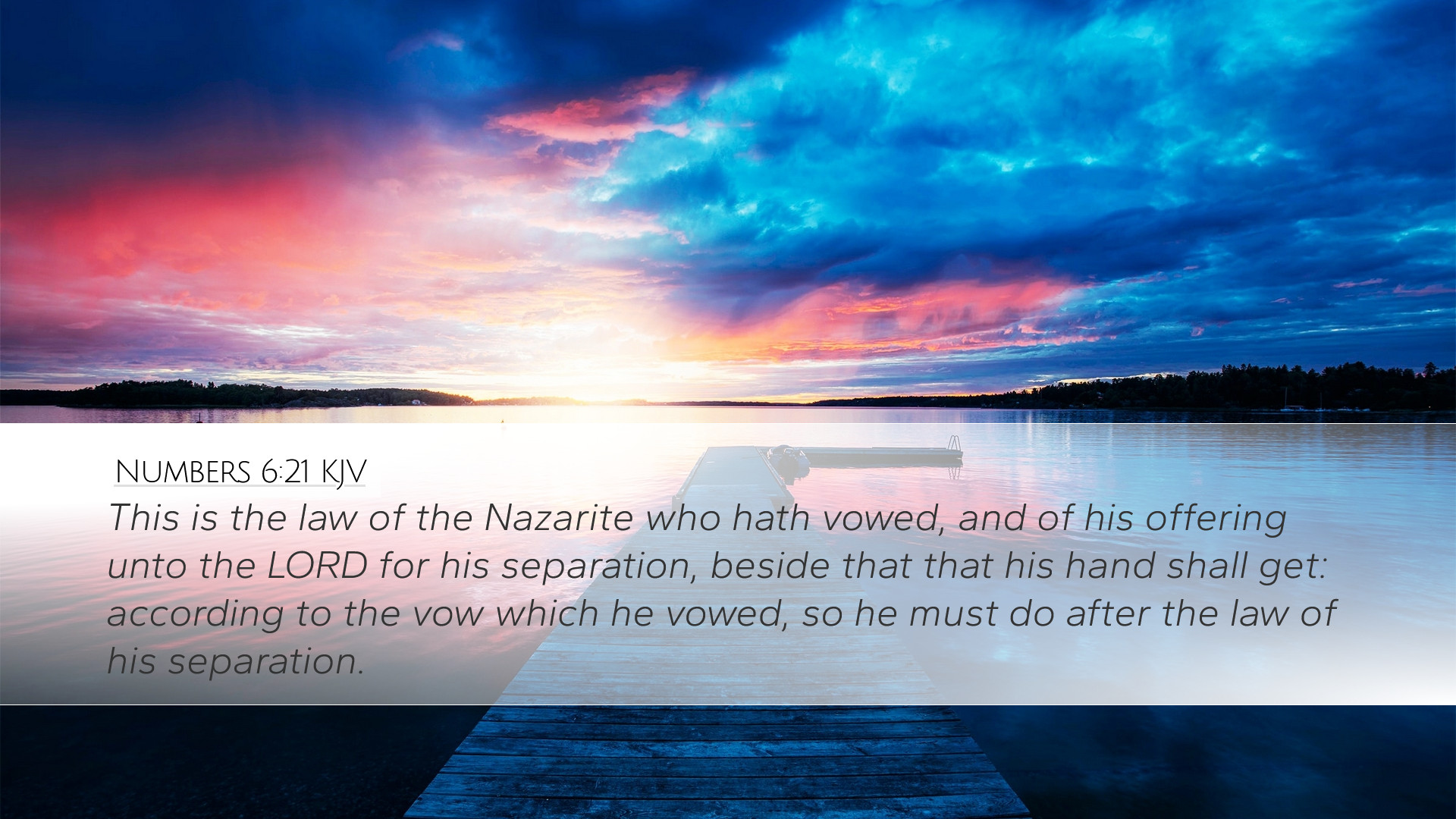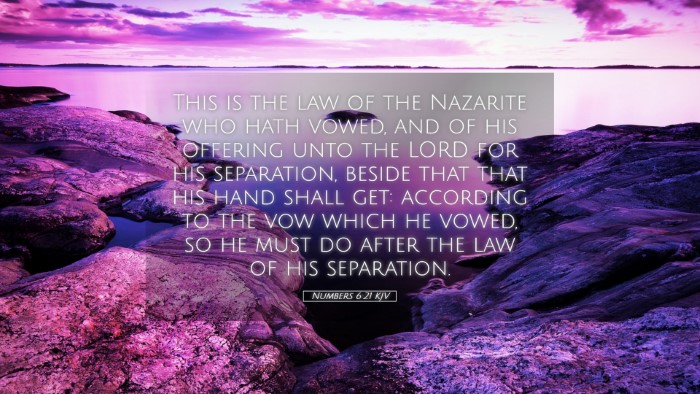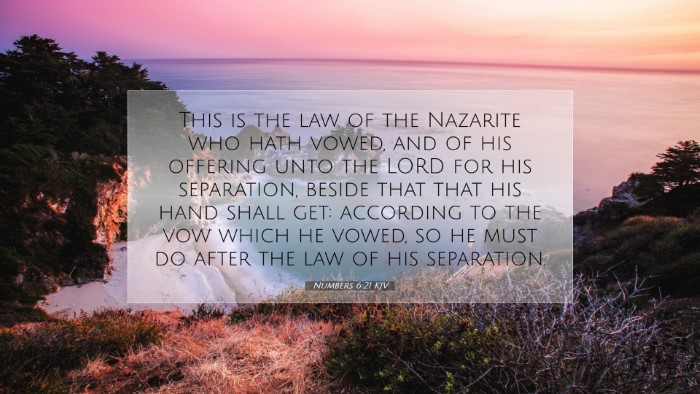Commentary on Numbers 6:21
Verse Reference: Numbers 6:21
“This is the law of the Nazirite, who vows his offering to the LORD for his separation, aside from what his hand is able to provide: according to the vow which he takes, so he must do, according to the law of his separation.”
Introduction
This verse concludes the section of the law regarding the Nazirite vow, a unique and sacred commitment to God characterized by particular prohibitions and offerings. The Nazirite was one who dedicated himself to the service of God in a way that involved abstaining from certain worldly pleasures, embodying a higher spiritual calling. This commentary synthesizes insights from public domain sources to explore its theological and practical implications.
The Nature of the Nazirite Vow
1. Definition and Commitment
Matthew Henry emphasizes the significance of the vow being a “voluntary” commitment. This illustrates the profound personal dedication a Nazirite undertakes. It is a choice made from a desire to grow closer to God, reflecting an intentional act of faith.
2. Separation and Holiness
Albert Barnes notes that the term "Nazirite" is derived from the Hebrew word meaning “to separate.” The separation involved in the vow distinguishes the Nazirite from the broader community of Israel and signifies a profound commitment to holiness. Such distinctions underscore the biblical principle that those who serve God must do so with purity and intent.
The Vows and Their Requirements
1. Specific Regulations
Adam Clarke provides a careful exposition of the various regulations governing Nazirites. The vow included abstaining from wine and strong drink, avoiding contact with the dead, and allowing hair to grow freely. Each of these acts symbolized a radical dedication and a rejection of common societal norms, emphasizing the commitment to spiritual seriousness.
2. The Law of the Nazirite
The text presents the culmination of the Nazirite's commitments, reminding ministers and scholars that each vow must be fulfilled meticulously. Henry suggests that this serves as a reminder of the serious nature of vows made to God. When one makes vows, there is a considerable responsibility to uphold them.
Offerings and Acknowledgment to God
1. Spiritual Offerings
According to the verse, the offerings made by the Nazirite reflect gratitude and acknowledgment of God’s sovereignty. Clarke points out that the offerings should align with what the individual can provide, demonstrating both humility and devotion. This principle can be a guiding truth for believers today—our offerings to God should conform to our means and be given in love.
2. The Role of Sacrifice
Barnes elaborates on the importance of sacrifice as part of the Nazirite's vow. The act of offering signifies not just worship but a deliberate expression of one’s relationship with God. Each offering recalls the covenant and the faithfulness of God in the life of the individual who seeks to honor Him.
Theological Implications
1. Understanding Holiness
The Nazirite vow serves as a means to understand the concept of holiness as it applies to believers today. Henry asserts that holiness involves separation from sin and dedication to God. This historical context invites pastors and theologians to reflect on how the call to holiness manifests in contemporary Christian life.
2. The Joy of Commitment
Clarke mentions that while the vow requires discipline, it can bring immense joy to the individual. The commitment inspires a closer walk with God, fostering a joyful response to the divine call. This interplay of duty and delight can serve as a model for pastoral teaching on commitment in faith.
Practical Applications for Today
1. Living a Life of Separation: Pastors are encouraged to highlight the modern application of separation in a world filled with distractions. The Nazirite vow challenges believers to identify areas in their lives where they can separate themselves to serve God more fully.
2. Faith in Action: This verse also calls for an active response in faith. As Nazirites had particular offerings to present, today’s Christians are also called to embody their faith through acts of service, generosity, and worship that reflect their commitment to God.
Conclusion
Numbers 6:21 encapsulates profound truths about dedication, holiness, and the implications of living a life devoted to God. For pastors, students, and scholars alike, the Nazirite vow serves not only as an ancient practice but as a template for deepening one’s relationship with God today. The insights drawn from the commentaries of Matthew Henry, Albert Barnes, and Adam Clarke underscore the timelessness of this sacred calling, encouraging believers to honor their vows to the Lord with sincerity and joy.


